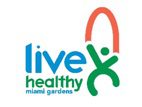|
Getting your Trinity Audio player ready...
|
 Healthy eating is especially important for keeping your immune system in top condition.
Healthy eating is especially important for keeping your immune system in top condition.
People who eat a well-balanced diet tend to be healthier with stronger immune systems and lower risk of chronic illnesses and infectious diseases.
Here are some steps you can take to eat healthy in the times of COVID.
Minimize trips to the supermarket during the pandemic and eat healthy – Before you shop, plan ahead and make a shopping list. Think about breakfast, lunch, and dinner for at least five (5) days. Consider the foods you and your family like, your food preparation methods, interests and skills, and the time and energy you will have for preparing meals.
Think nutrition – The healthiest meals emphasize whole grains, vegetables, and fruits. Serve these food items in the greatest amounts. Meat portions should be smaller which will also save money and help keep dietary saturated fat in check.
Go easy on the frozen dinners – Most are high in sodium, fat, and calories.
Limit purchases of tempting foods like chips, sodas, cookies, and ice cream. They are high in empty calories and run up your grocery bill.
Keep costs down – Consider low cost alternatives. For example, instead of buying ready-made hummus, pureed a drained can of chickpeas to make your own. Try a meatless meal, like chili with beans instead of beef. If fresh fruits and veggies are too costly, remember, canned and frozen fruits and vegetables provide the same nutrients as fresh. Best bets are plain frozen veggies and fruits. Go for low sodium canned veggies and fruits canned in juice or water—if these are in short supply, buy regular canned fruits and veggies—drain and rinse before use.
Build up a stock of healthy snacks – Rather sweet or salty, opt for healthier options like nuts, cheese, and yogurt (preferably unsweetened), chopped or dried fruits, boiled eggs, or other locally available healthy options. These foods are nutritious, more filling, and help build healthy eating habits.
Limit highly processed foods – While using fresh produce may not always be possible, try to limit the amount of highly processed foods in your shopping basket. Ready-to-eat meals, packaged snacks and desserts are often high in saturated fat, sugars and salt. If you do purchase processed foods, look at the label and try to choose healthier options containing less of these substances. Try to also avoid sugary drinks and instead drink lots of water. Adding fruits or vegetables like lemon, lime, cucumber slices or berries to water is a great way to add an extra twist of flavor.
Make cooking and eating a fun and meaningful part of your family routine – Cooking and eating together is a great way to create healthy routines, strengthen family bonds and have fun. Wherever you can, involve your children in food preparation. Small children can help with washing or sorting food items while older children can take on more complex tasks and help to set the table. Try as much as possible to stick to fixed mealtimes as a family. Such structures and routine can help reduce anxiety for children in these stressful situations.





